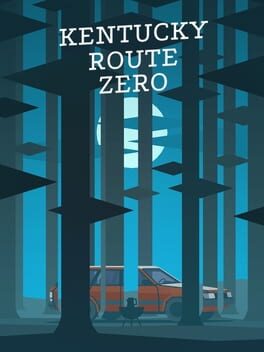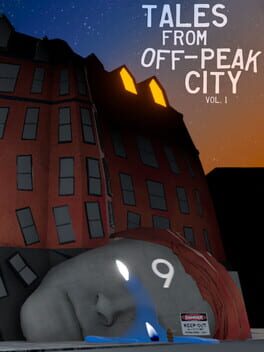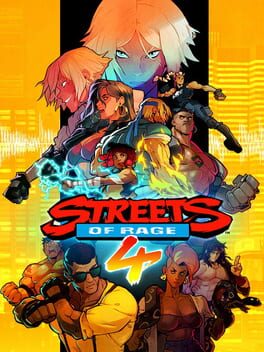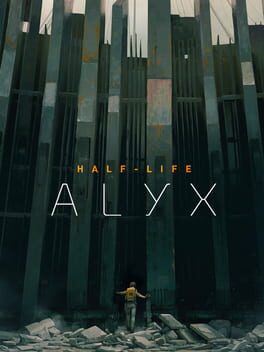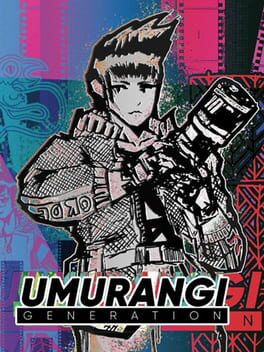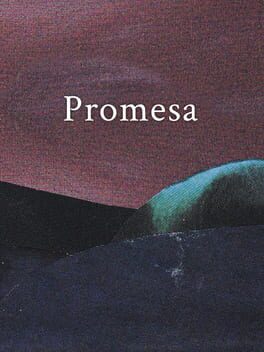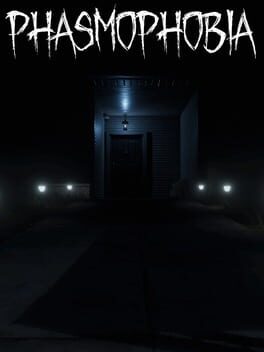Favorites of 2020
Weird year. I feel like this list really shows this growth spurt of sorts that I hit some time ago w/r/t my taste in games. List with better formatting here: https://www.giantbomb.com/profile/mabaseslums/lists/favorites-of-2020/370998/
10 Games
I kinda feel like an asshole for saying this, especially for a game that has been deified by all shy-of-mainstream critical lenses, but if Kentucky Route Zero did nothing for you, you might just lack the experience it’s tapping into. For that exclusion, I can only say sorry.
At many points in my life, I have lived and known life in American places shy of 1,000 residents. These are the type of place your city-born friends will have to think to say anything about (let alone nice anythings). Multi-layered buildings that housed several businesses to be abandoned and left to cook over the bouncing light of asphalt that surrounds them. Here’s what I’m saying: there is no setting in games that has captured the nuance of a sidewalk built for no-one to walk on. Trust me.
While KR0 is about a different America, a carefully romanticized industrial south, it is adjacent enough to rile those feelings to the surface with every shot, every bit of dialogue, and certainly every shift of its weight. But even in the grand scheme, the statement of the game, it is capturing the muted suffering of a population that has been promised much and given little. The ending, beautiful and well-considered as it is in the moment, doesn’t hit immediately, resulting in a mysterious, hollowed feeling. It took me a few days to feel the weight of it all, and judging by the insights of other players that felt the same way, this is just part of the game’s grieving process. Appropriate, really.
Much like the job that the game is centered around, KR0 is not fit to stay in one place. Many games fail to capture the scope of multi-faceted stories, let alone one as sprawling as this, but here we see just how far you can push the idea of conventional design wisdom if the results can justify it. Some might wonder how the game took so long to finish (as if 7 years is a long time to make 10 fully crafted chapters [+ other, non-game pieces] of interactive fiction), but I will continue to wonder how it was made at-fucking-all.
At many points in my life, I have lived and known life in American places shy of 1,000 residents. These are the type of place your city-born friends will have to think to say anything about (let alone nice anythings). Multi-layered buildings that housed several businesses to be abandoned and left to cook over the bouncing light of asphalt that surrounds them. Here’s what I’m saying: there is no setting in games that has captured the nuance of a sidewalk built for no-one to walk on. Trust me.
While KR0 is about a different America, a carefully romanticized industrial south, it is adjacent enough to rile those feelings to the surface with every shot, every bit of dialogue, and certainly every shift of its weight. But even in the grand scheme, the statement of the game, it is capturing the muted suffering of a population that has been promised much and given little. The ending, beautiful and well-considered as it is in the moment, doesn’t hit immediately, resulting in a mysterious, hollowed feeling. It took me a few days to feel the weight of it all, and judging by the insights of other players that felt the same way, this is just part of the game’s grieving process. Appropriate, really.
Much like the job that the game is centered around, KR0 is not fit to stay in one place. Many games fail to capture the scope of multi-faceted stories, let alone one as sprawling as this, but here we see just how far you can push the idea of conventional design wisdom if the results can justify it. Some might wonder how the game took so long to finish (as if 7 years is a long time to make 10 fully crafted chapters [+ other, non-game pieces] of interactive fiction), but I will continue to wonder how it was made at-fucking-all.
If you’ve ever sat in between two stores and, while getting lunch or waiting for a bus on the curb, leaned your head back as the hustle and bustle of each place bled out into your conversation, I think I have a game for you.
Cosmo D, the veritable auteur of the Off-Peak/Norwood games, attacks the idea of “place” from all possible angles. The space itself, the people you meet, the intangible nature of ambiance, even your personal attachments - it’s all accounted for. These games remind me a lot of Ōbayashi’s 1977 art-horror classic Hausu - it’s not just a series of stellar imagery and audiovisual accompaniments (seriously though, the OSTs of these games are best-in-class), it’s signaling cognitive thrill through every intersection of Cosmo D’s disparate, musical attention to detail.
What I think makes Tales From Off-Peak City Vol. 1 the most interesting game by Cosmo D so far is that it pushes past this mastery of “place” and begins to ask more of the player. From the top, the implication is that this diorama of a street is losing itself, and you’re not just bearing witness to its descent - you’re the final load-bearing pillar keeping everything in place. You deliver pizzas (the ultimate group food, no?) and capture moments of fleeting community. These reflective mechanics risk feeling vainglorious, but wind up serving as great tools to interact with a place you know you’ll eventually leave. And that ever present feeling of chronicling the end is what drives this game, from the boat you arrive on to the subway you exit.
Cosmo D, the veritable auteur of the Off-Peak/Norwood games, attacks the idea of “place” from all possible angles. The space itself, the people you meet, the intangible nature of ambiance, even your personal attachments - it’s all accounted for. These games remind me a lot of Ōbayashi’s 1977 art-horror classic Hausu - it’s not just a series of stellar imagery and audiovisual accompaniments (seriously though, the OSTs of these games are best-in-class), it’s signaling cognitive thrill through every intersection of Cosmo D’s disparate, musical attention to detail.
What I think makes Tales From Off-Peak City Vol. 1 the most interesting game by Cosmo D so far is that it pushes past this mastery of “place” and begins to ask more of the player. From the top, the implication is that this diorama of a street is losing itself, and you’re not just bearing witness to its descent - you’re the final load-bearing pillar keeping everything in place. You deliver pizzas (the ultimate group food, no?) and capture moments of fleeting community. These reflective mechanics risk feeling vainglorious, but wind up serving as great tools to interact with a place you know you’ll eventually leave. And that ever present feeling of chronicling the end is what drives this game, from the boat you arrive on to the subway you exit.
The push for remakes in this modern gaming climate is growing thin on me. It feels like every 3rd property you hold dear is subject to the cheesy movie depiction of land development, where you eventually have to stand on the sole patch of grass in the area to prevent some AAA publisher from bulldozing the final natural part of the avenue. Demon’s Souls, NieR, even rumors of Metal Gear fucking Solid being remade! It’s all - at best - a hollow way to placate fans, but really it just seeks to confuse and dismantle any idea of preservation and respect for the original artistry. Just let the dead rest easy.
In this regard, 1+2 is an interesting study. As much as I’d like to say THPS had a peaceful twilight, it really didn’t. The legacy of the games had been mostly kept as a classic, but THPSHD and 5 were huge mistakes that, from my perspective, sullied the idea that one of the greatest feeling series of all-time was still worth caring about. When the choice was to skate or die, the world looked at Tony Hawk and chose die.
I have a handful of issues with the game (several of them are also issues with the original THPS 1+2), but they all pale when coupled to Vicarious Vision’s uncanny ability to create an idealized centerpiece for the series through existing examples alone. I can only imagine crafting this was akin to a mad scientist’s autopsy, carefully navigating footage, experiential re-tellings, and test runs of the cadaver in an attempt to form the Frankenstein’s Monster of Ideal Skateboard Video Games. They nailed it, plain and simple, and though the future of VV is... bleak (please let 3+4 happen), I’d love to see this continue.
In this regard, 1+2 is an interesting study. As much as I’d like to say THPS had a peaceful twilight, it really didn’t. The legacy of the games had been mostly kept as a classic, but THPSHD and 5 were huge mistakes that, from my perspective, sullied the idea that one of the greatest feeling series of all-time was still worth caring about. When the choice was to skate or die, the world looked at Tony Hawk and chose die.
I have a handful of issues with the game (several of them are also issues with the original THPS 1+2), but they all pale when coupled to Vicarious Vision’s uncanny ability to create an idealized centerpiece for the series through existing examples alone. I can only imagine crafting this was akin to a mad scientist’s autopsy, carefully navigating footage, experiential re-tellings, and test runs of the cadaver in an attempt to form the Frankenstein’s Monster of Ideal Skateboard Video Games. They nailed it, plain and simple, and though the future of VV is... bleak (please let 3+4 happen), I’d love to see this continue.
SPEAKING of possibly disastrous returns to great franchises: Streets of Rage 4, huh? The original trilogy (well, some people like all 3) is held in such high regard among its beat-em-up peers for many reasons, but I suspect the key piece that elevates it past the rest is how sharp the games are - not despite, but due to their simplicity. To quote a tired phrase, it’s all killer and no filler.
I was incredibly nervous about this game, not just because of the hard-to-read development circumstances, but because it is a story told a dozen times by this point. The beat-em-up is already a niche genre in the industry, but I think the sporadic attempts at genre-revival in the past decade or so wound up doing more damage than good to the perception of the classics. Not only do I think this because they all seemingly lack the confidence in the genre’s tenets to be simple and effective games, but by competing (and losing, frankly) against the rising popularity of 3D Character Action, they only sought to obfuscate the strengths of the genre (if you don’t believe me, recount how many times you’ve heard someone say the beat-em-up genre wasn’t “for them,” but DMC or Bayonetta - challenging and repetitive action games in their own rights - were).
Well, with a shocking degree of deftness, Streets of Rage remains a series of hits with 4. Guard Break shows reverence for the originals while constructing a solid framework for the future of the series. In fact, the weakest points of this game usually are where they don’t reach far enough, but it’s understandable given the task at hand. SoR4 is still the highlight of the genre’s recent life, and might be the first time a modern entry felt like a shock and not a numbing sensation.
I was incredibly nervous about this game, not just because of the hard-to-read development circumstances, but because it is a story told a dozen times by this point. The beat-em-up is already a niche genre in the industry, but I think the sporadic attempts at genre-revival in the past decade or so wound up doing more damage than good to the perception of the classics. Not only do I think this because they all seemingly lack the confidence in the genre’s tenets to be simple and effective games, but by competing (and losing, frankly) against the rising popularity of 3D Character Action, they only sought to obfuscate the strengths of the genre (if you don’t believe me, recount how many times you’ve heard someone say the beat-em-up genre wasn’t “for them,” but DMC or Bayonetta - challenging and repetitive action games in their own rights - were).
Well, with a shocking degree of deftness, Streets of Rage remains a series of hits with 4. Guard Break shows reverence for the originals while constructing a solid framework for the future of the series. In fact, the weakest points of this game usually are where they don’t reach far enough, but it’s understandable given the task at hand. SoR4 is still the highlight of the genre’s recent life, and might be the first time a modern entry felt like a shock and not a numbing sensation.
VR has stayed such a kitschy staple of pop culture that it actually existing as a burgeoning, if disappointingly mundane, frontier still hits me in waves. The very same future that sci-fi authors admonished and oogled is now sitting on the corner of my desk. Go back and give Phillip K. Dick an Index and he'd shit his pants to DEATH, whereas I will continue to chop hundreds of boxes in half to mediocre EDM.
Half-Life: Alyx, much like the technology it is designed around, is similarly exciting despite a relative spiritlessness. This is a game that is both intelligent in its design while also refusing to stray too far from what you'd expect it to be. I mean, I’ve said the same to everyone that asks about it: it is “Half-Life But in VR” through and through. There’s an endless spectrum of conclusions you can take from that, and they’re all true in some way.
That said, the potency of this platform still hasn't rubbed off quite yet, and Alyx has plenty of life lessons to give away. Deadly combat in games will forever feel different for me. Not that this game was designed for this takeaway necessarily, but the authenticity of a shotgun barrel being pointed at my chest caused jitters and amygdalian responses to linger far longer than the initial encounter. And, in typical Valve fashion, there’s one level (Jeff, for those who know) that justifies the entire project with how succinct the execution of its single, interesting idea is. I could see myself regretting this placement in the future, but for now, the feeling is too real to deny.
Half-Life: Alyx, much like the technology it is designed around, is similarly exciting despite a relative spiritlessness. This is a game that is both intelligent in its design while also refusing to stray too far from what you'd expect it to be. I mean, I’ve said the same to everyone that asks about it: it is “Half-Life But in VR” through and through. There’s an endless spectrum of conclusions you can take from that, and they’re all true in some way.
That said, the potency of this platform still hasn't rubbed off quite yet, and Alyx has plenty of life lessons to give away. Deadly combat in games will forever feel different for me. Not that this game was designed for this takeaway necessarily, but the authenticity of a shotgun barrel being pointed at my chest caused jitters and amygdalian responses to linger far longer than the initial encounter. And, in typical Valve fashion, there’s one level (Jeff, for those who know) that justifies the entire project with how succinct the execution of its single, interesting idea is. I could see myself regretting this placement in the future, but for now, the feeling is too real to deny.
[WIP]
7
I don’t think it’s an accident that this list features several games whose primary back-of-the-box feature is: “Interesting places to be in!” I mean, look at the calendar. While all of them probably cross wires in at least a few ways, Promesa might be the only one that is of a second-hand report.
The fading of memories and preciousness of personal yearnings are inherently alienating and scary subjects to try and cover, but Promesa handles it with great care. Illusive renditions of Europeans and South American cities take you to places you’ve never been, yet with the art direction and frankly eerie soundscapes, you might begin to understand what it’s going for regardless. Some might not appreciate the delicate touch of its exploration (very very slow, very very indirect), but I believe that any more inspection would result in something more voyeuristic. This is a game that succeeds in being ruminative not through the contents of the work, but through the distance achieved.
The fading of memories and preciousness of personal yearnings are inherently alienating and scary subjects to try and cover, but Promesa handles it with great care. Illusive renditions of Europeans and South American cities take you to places you’ve never been, yet with the art direction and frankly eerie soundscapes, you might begin to understand what it’s going for regardless. Some might not appreciate the delicate touch of its exploration (very very slow, very very indirect), but I believe that any more inspection would result in something more voyeuristic. This is a game that succeeds in being ruminative not through the contents of the work, but through the distance achieved.
8
While I would accuse Hades of being Supergiant’s most uneven game so far, the parts that have been developed outward were done so dramatically and excellently. The variety of character work here makes the earlier voice of the studio look downright myopic by comparison (granted, having a literal pantheon of histories to work off of probably helps). Similarly, the vertical AND horizontal expansion to the Dark Alliance-y combat shows a pole-vault of proficiency since the simpler days of something like Bastion.
It’s a strange place for a Supergiant game to be for me, though. I’ve always held that Bastion, Transistor, and Pyre are games that’re greater than the sum of their parts; however, that almost seems to be the opposite case for Hades. The fruits of Supergiant’s discipline have been harvested after a decade for a massive bounty (character design, voice acting, progression systems - to name a few), but the end result is that this game ends up feeling like a medley less than the sharp insular curve that, say, Pyre had. I’m not even sure this is a bad thing, it’s just something to get used to.
There’s not much else to say of it, really. It was a bonafide cultural event last year, riding the coattails of Animal Crossing’s success as a pandemic-reliever to the top of the charts. I will say, it’s nothing short of a miracle that a game living in early access for years before its debut was able to land with a 1.0 that seemed so clearly shaped like an intriguing final product. It was a risk, and it worked. Supergiant seems to be pretty good at that.
It’s a strange place for a Supergiant game to be for me, though. I’ve always held that Bastion, Transistor, and Pyre are games that’re greater than the sum of their parts; however, that almost seems to be the opposite case for Hades. The fruits of Supergiant’s discipline have been harvested after a decade for a massive bounty (character design, voice acting, progression systems - to name a few), but the end result is that this game ends up feeling like a medley less than the sharp insular curve that, say, Pyre had. I’m not even sure this is a bad thing, it’s just something to get used to.
There’s not much else to say of it, really. It was a bonafide cultural event last year, riding the coattails of Animal Crossing’s success as a pandemic-reliever to the top of the charts. I will say, it’s nothing short of a miracle that a game living in early access for years before its debut was able to land with a 1.0 that seemed so clearly shaped like an intriguing final product. It was a risk, and it worked. Supergiant seems to be pretty good at that.
You know, after years and years of independent games serving underhand tosses for guaranteed bases, I’m at least glad that Paradise Killer seeks to alienate and engross all at the same time. While it’s a spartan attempt at open-world mystery on the surface, what lies beneath is batshit massive worldbuilding on batshit indulgent characters on batshit esoteric UI design. Sure, Paradise Killer wears its influences on the sleeve, but it’s doing it quite well! And Flower, Sun, and Rain is a much more interesting jumping-off point than Ghibli and Ocarina of Time, if you ask me.
The open-ended nature of this game is arguably a point of contention, due in part to its Donkey Kong 64-esque love of things that accumulate; however, the range of vibes the island gives off from any one intersection of diegetic music and marble vistas is one of the reasons I like games like this in the first place. I find myself on this mini-peninsula with a speaker cranking out vapor-funk as the cosmically vast ocean rolls along, what am I to do but enjoy myself? And when it all comes to pass, the game is lucky enough to land its final moments, a fleetingly rare thing for a mystery game to manage.
Do I have a complete grasp on this game and what’s it trying to do? Probably not! I still doubt at times that there’s an undercurrent of depth to discover, honestly. It might really be just style over substance (which would be an unfortunate result of this Suda51/Kodaka worship), but goddamn, that’s some well-considered, obstinate style.
The open-ended nature of this game is arguably a point of contention, due in part to its Donkey Kong 64-esque love of things that accumulate; however, the range of vibes the island gives off from any one intersection of diegetic music and marble vistas is one of the reasons I like games like this in the first place. I find myself on this mini-peninsula with a speaker cranking out vapor-funk as the cosmically vast ocean rolls along, what am I to do but enjoy myself? And when it all comes to pass, the game is lucky enough to land its final moments, a fleetingly rare thing for a mystery game to manage.
Do I have a complete grasp on this game and what’s it trying to do? Probably not! I still doubt at times that there’s an undercurrent of depth to discover, honestly. It might really be just style over substance (which would be an unfortunate result of this Suda51/Kodaka worship), but goddamn, that’s some well-considered, obstinate style.
10
Phasmophobia might be the lowest I’ve ever rated a game that has then gone on to appear on one of my year-end lists (for those reading on Giant Bomb, the game sits at 3.5/5 stars on my backloggd). It’s with reasoning though - some optimistic, some not. This game is an early-access title, and with that bizarre and sometimes-harrowing qualifier means that everything is subject to change. However, I don’t know if we’re gonna be going up from here with simple, incremental changes. I’m getting ahead of myself.
Phasmo (I call it Phasmo) is the best multiplayer horror game I’ve ever played... for about 8 hours. After that point, you start to receive the intrigue in diminishing returns, up to the point where the jig is up and nothing really works about it anymore. It’s hard to say whether this is an issue per say, or simply a fact of horror - that it will never last, even if its cleverly strung up with some semi-secret machinations. What I do know is that it was a valuable event for me (as any distracting moment is nowadays), and I’d happily return provided that the developer (all one of them!) is interested in stirring the metaphorical cauldron for the sake of the spirit that resides in this game. Witches and ghosts! I’ve officially lost control of this blurb.
Phasmo (I call it Phasmo) is the best multiplayer horror game I’ve ever played... for about 8 hours. After that point, you start to receive the intrigue in diminishing returns, up to the point where the jig is up and nothing really works about it anymore. It’s hard to say whether this is an issue per say, or simply a fact of horror - that it will never last, even if its cleverly strung up with some semi-secret machinations. What I do know is that it was a valuable event for me (as any distracting moment is nowadays), and I’d happily return provided that the developer (all one of them!) is interested in stirring the metaphorical cauldron for the sake of the spirit that resides in this game. Witches and ghosts! I’ve officially lost control of this blurb.
